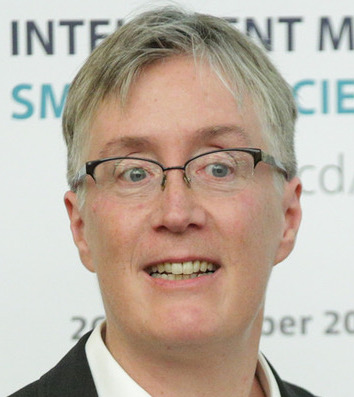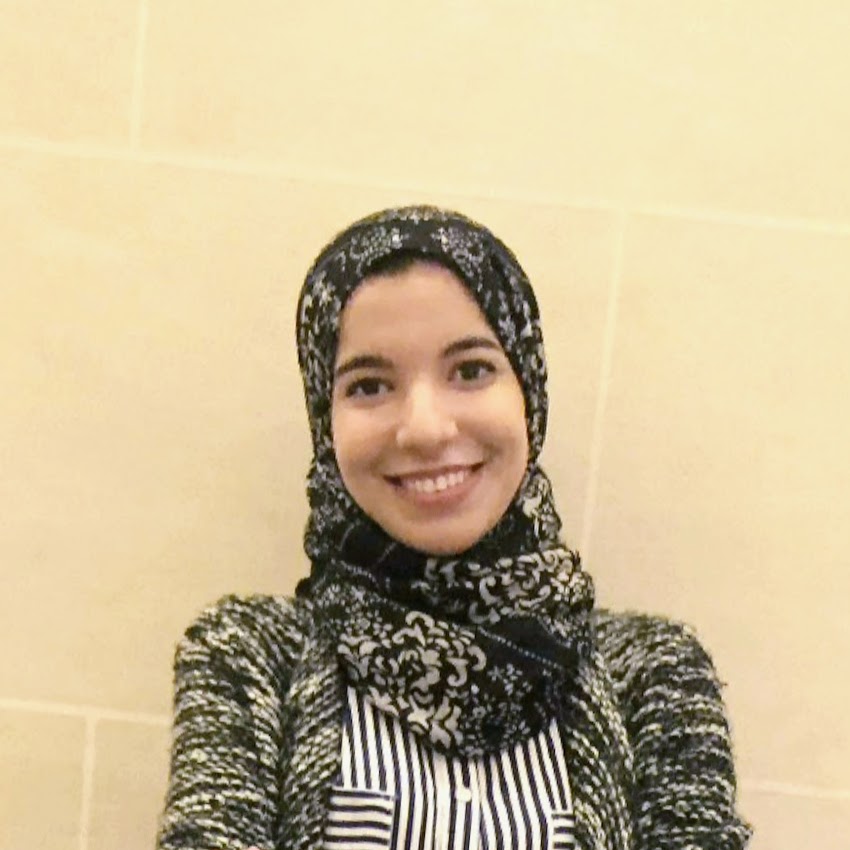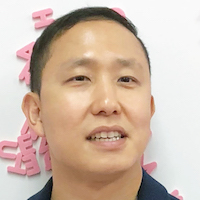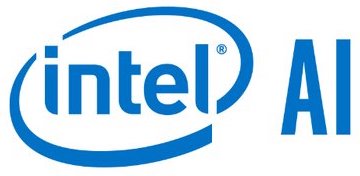Schedule
Monday May 6th
See the videos here
8:45 - 10:30 Main conference
10:30 - 11:00 Coffee Break / Poster session
11:00 - 11:45 Towards Responsible AI Organizations
OpenAI is well known for the development of tooling, research, and policy towards safer intelligent systems. Examples include the OpenAI Charter, a project on Malicious Uses of AI, and the GPT-2 language model publication strategy. More recently, OpenAI reorganized as a 'capped profit' organization to secure funding for the long-term development of responsible AI systems. For this presentation, OpenAI Policy Director Jack Clark will describe OpenAI's theory of change and what other groups can do to increase the chance of AI benefiting all of humanity.

Jack Clark
OpenAI
Jack Clark is the policy director for OpenAI, an AI research and development organization. At OpenAI, Jack leads the organization’s efforts around AI policy. He also sits on the steering committee of the AI Index, an initiative from the Stanford One Hundred Year Study on AI to track and analyze AI progress. Additionally, Jack is a member of the Center for a New American Security (CNAS) Task Force on AI and National Security. In 2018, he participated in the 2018 'Assembly' program on ethics and governance in AI at the MIT Media Lab and Berkman Klein Center at Harvard. Jack writes a widely-read newsletter about AI research called AI for Import AI.
11:45 - 12:15 Because We Matter: Engaging with AI Governance
With AI and ICT, we are breaking down the traditional lines of autonomy that defined nations, corporations, and even families. This has implications for our economy, our democracy, and our individual liberty. It’s not necessarily a disaster, though it has already caused some significant disruptions. Getting on top of this problem requires better understanding and accepting the mechanistic aspects of ourselves and our society, then working to find new ways to keep ourselves socially and emotionally engaged, politically organized, and economically productive. Until we do so, we run the risk of handing control of ourselves and our nations to other individuals and organizations.

Joanna Bryson
University of Bath
Joanna J. Bryson is a transdisciplinary researcher on the structure and dynamics of human- and animal-like intelligence. Her research covering topics from artificial intelligence, through autonomy and robot ethics, and on to human cooperation has appeared in venues ranging from a reddit to Science. She holds degrees in Psychology from Chicago and Edinburgh, and Artificial Intelligence from Edinburgh and MIT. She has additional professional research experience from Princeton, Oxford, Harvard, and LEGO, and technical experience in Chicago's financial industry, and international management consultancy. Bryson is presently a Reader (associate professor) at the University of Bath.
12:15 - 12:20 AI Commons
AI Commons is a collective project whose goal is to make the benefits of AI available to all. Since AI research can benefit from the input of a large range of talents across the world, the project seeks to develop ways for developers and organizations to collaborate more easily and effectively. As a community operating in an environment of trust and problem-solving, AI Commons can empower researchers to tackle the world's important problems using all the possibilities of cutting-edge AI.

Yoshua Bengio
Mila
Yoshua Bengio is Full Professor of the Department of Computer Science and Operations Research, scientific director of Mila, CIFAR Program co-director of the CIFAR Learning in Machines and Brains program (formerly Neural Computation and Adaptive Perception), scientific director of IVADO and Canada Research Chair in Statistical Learning Algorithms. His main research ambition is to understand principles of learning that yield intelligence. supervises a large group of graduate students and post-docs.His research is widely cited (over 130000 citations found by Google Scholar in August 2018, with an H-index over 120, and rising fast).
12:20 - 12:25 Problem Introduction - Disaster Insurance: New parametric contracts based on satellite images
In disaster risk management, a parametric insurance is a contract where the buyer enters into a protection that will payout under predefined conditions, comparing the value of a parameter or an index to a trigger. A disaster index estimating damages can be built by comparing satellite images from pre-disaster and post-disaster using Convolutional Neural Networks (ConvNets). Standardization of these financial instruments could guarantee a timely, diligent and transparent process to release needed funds after the catastrophe, particularly critical for developing countries.

Joey Hyun Joon Lee
World Bank Treasury
Joey Hyun Joon Lee is a Financial Analyst at the World Bank Treasury. He provides quantitative solutions and develops various financial engineering solutions using machine learning / Artificial Intelligence. His recent work in machine learning space includes a natural language processing of FOMC statements of the Federal Reserve using Naïve Bayes classifier. He holds masters’ degree in Finance from The George Washington University and B.S. in Computer Science and Engineering from University of California, Los Angeles.
12:25 - 12:30 Problem Introduction - Decoding Hidden Language for Social Good
Bad actors on digital platforms find creative ways to evade detection by moderation systems. For example, large groups of users may decide to use euphemisms or “code words” for communities within hate speech, names of drugs for online drug peddling and criminal activities within gangspeak. We propose the use of robust neural language models trained over large corpora to automatically infer unusual parts of text within specific contexts that may indicate the use of euphemisms.

Rijul Magu
Conduent Labs
Rijul Magu is a natural language processing research scientist at Conduent Labs. His research primarily spans the domains of network science and natural language processing within the context of computational social science. Recently, he has worked on automated methods of detecting implicit hate speech detection on news and social media, along with modelling international voting patterns as networks. Prior to joining Conduent, Rijul completed a Masters in Computer Science degree at the University of Rochester.
12:30 - 12:35 Problem Introduction - Planning in Home Health Care Structures using Reinforcement Learning
In many countries, hospitalization costs for both patients and governments have known a significant increase. Recent studies linked these costs mainly to people getting chronic diseases, and patients expressing preferences for their comfort. Home Health Care became a potential answer to these issues by providing health care in a friendly environment and reducing costs while respecting crucial constraints. Using Reinforcement Learning, we propose developing a novel framework to solve the patient - caregiver matching leading to real-world social impact by increasing the general well-being of patients and making a big progress towards integrating HHC in health care system.

Sanae Lotfi
Polytechnique Montreal
Sanae Lotfi is a research master's student in applied mathematics and a member of the Canada Excellence Research Chair in Data Science for Real-Time Decision-Making at Polytechnique Montréal. Her current research, under the supervision of Prof. Andrea Lodi, aims at studying optimization for machine learning. Before that, Sanae attended a preparatory school in Morocco, then pursued her studies as a master's student in applied mathematics at Ecole CentraleSupélec in France and she is currently pursuing a double degree at Polytechnique Montréal.
12:35 - 13:00 Poster session
13:00 - 14:30 Lunch - on your own
14:30 - 16:00 Main conference
16:00 - 16:30 Coffee Break / Poster session
16:30 - 17:00 Poster session
17:00 - 17:10 A pipeline for emergency response
The talk will focus on our research done in collaboration with the Nashville Fire and Police departments to forecast incidents like accidents and crimes, and algorithmic methods of allocating and dispatching emergency responders.

Ayan Mukhopadhyay
Vanderbilt University
Ayan is a doctoral candidate at Vanderbilt, working on Machine Learning and AI for Social Good. He collaborates with various government bodies to predict incidents like crimes and accidents, and then creates algorithmic approaches to perform decision making under uncertainty. His work has been published at various top-tier conferences, showcased in multiple smart-city summits and has recently been chosen for the Metro Labs innovation award.
17:10 - 17:20 Customizable Facial Gesture Recognition for Improved Assistive Technology
Digital devices have become an essential part of modern life. However, it is much more difficult for less able-bodied individuals to interact with them. Assistive technology based on facial gestures could potentially enable people with upper limb motor disability to interact with electronic interfaces effectively and efficiently. Previous studies proposed solution that can classify predefined facial gestures.
Jackson Wang
University of Toronto
Kuan-Chieh (Jackson) Wang is a PhD student of Computer Science at the University of Toronto, and the Vector institute. His current interests include learning from little data, deep generative models and their applications.
17:20 - 17:30 Visualizing the Consequences of Climate Change Using Cycle-Consistent Adversarial Networks
There are many problems related to Climate Change in which AI can help. We chose to focus on making it more real, more personal and more visceral for persons by producing both scientifically sound and emotionally compelling visualizations. As a first attempt, we focused on how to generate images of a typical Climate Change extreme event: flooding. Using a person's address, we use CycleGANs to apply a "flooding" transformation to an image of their home, in order to engage them into supporting necessary actions.

Victor Schmidt
MILA
Victor Schmidt is a PhD candidate at Mila, supervised by Dr. Yoshua Bengio. His research focuses on Generative Adversarial Networks for imate-to-image translation and more generally computer vision systems able to modify a scene. He is part of Mila's Climate Change AI group which aims at creating a more visceral understanding of the effects of Climate Change. Prior to this, he worked as an NLP Data Scientist at the French Ministry for the Economy in a service dedicated to fighting financial fraud and terrorism financing.
17:30 - 17:40 Deep Learning to Predict Student Outcomes
In the world of MOOCs, an automated machine which reliably predicts student outcomes in real-time (or early stages), would be a valuable tool for making smart decisions about when (and with whom) to make live educational interventions as students interact with online coursework, with the aim of increasing engagement, providing motivation, and empowering students to succeed. Thus, in this talk, we first recast the student outcome prediction problem as a sequential event prediction problem, introduce a GritNet architecture, and develop an unsupervised domain adaptation method to transfer a GritNet trained on a past course to a new course without any (students' outcome) label. Our results for real Udacity students' graduation predictions show that the GritNet not only generalizes well from one course to another across different Nanodegree programs, but enhances real-time predictions explicitly in the first few weeks when accurate predictions are most challenging. In contrast to prior works, the GritNet does not need any feature engineering, and it can operate on any student interaction data associated with a timestamp.

Byung-Hak Kim
Udacity
Byung-Hak Kim is a staff AI research scientist at Udacity. Previously, he was a machine learning research scientist at Capio's speech team and a signal processing algorithms architect in Marvell's data storage group. He leads the AI research at Udacity to shape the future of education and makes its direct impact to the world at scale. In 2012, he received his PhD from the ECE Department at Texas A&M with a focus on information theory with applications in machine learning, probabilistic graphical models, and communications.
17:40 - 17:50 Towards the Standardization of Data Licenses
This paper provides a taxonomy for the licensing of data in the fields of artificial intelligence and machine learning. The paper’s goal is to build towards a common framework for data licensing akin to the licensing of open source software. Increased transparency and resolving conceptual ambiguities in the existing licensing language would be beneficial to the AI community as a whole.

Paul Gagnon
ElementAI
Paul Gagnon, Paul joined Element AI in late 2017 and his practice focuses on data, intellectual property and partnerships. Having completed an LL.M. in IP and Competition Law (Max-Planck) and an M.Sc. (Sherbrooke), Paul is a keen observer of the interplay between intellectual property and competition law, data markets and technology. His day-to-day includes licensing and data management, open source software governance and research collaboration frameworks.

Misha Benjamin
ElementAI
Misha Benjamin, Misha Benjamin is a lawyer specialized in the commercialization of cutting edge technology, and the management of related IP rights. Since joining Element AI two years ago, he has had to address all legal aspects of the business of artificial intelligence, including copyright, open-source, patent, data and commercialization issues, as well as developing a global IP strategy.
17:50 - 18:00 Open announcement
18:00 - 18:30 Best Paper Award and Poster Session


